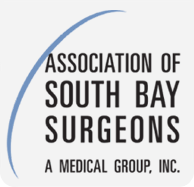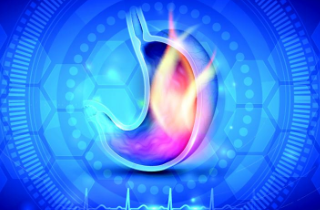Gastric / Stomach
Gastric issues like ulcers, polyps, cancer, and gastroparesis can be effectively diagnosed and treated by the experienced surgeons at Association of South Bay Surgeons. Treatment includes minimally invasive laparoscopic and endoscopic surgery that allows for a fast recovery.
Gastric Procedures Q & A
Gastric ulcers are ulcers that develop due to stomach acid. An ulcer causes damage to the gut lining, and it typically looks like a tiny crater. Ulcers are often caused by an infection, and are thus typically treated with an acid suppressant medication and antibiotics. However, ulcers can be far more serious. A serious gastric ulcer causes bleeding or internal perforations. Ulcers of this type usually require surgical treatment for a satisfactory resolution.
In gastroparesis, the stomach isn’t able to empty food properly. This can cause a number of serious problems in the long term, including poor control of blood sugar, unwanted weight loss, fermentation of food stuck in the stomach, hardening of food into a bezoar that can’t be passed into the intestines, and regular vomiting of food that hasn’t been digested yet. People who suffer from gastroparesis can sometimes be treated with conservative therapy like dietary changes and medication. However, serious cases of gastroparesis may require surgical correction.
Gastric cancer causes malignant cells to develop within the stomach lining. There are many possible types of gastric cancer, including adenocarcinomas, lymphomas, carcinoid tumors, and stromal tumors. Gastric cancer develops quietly, often causing no major symptoms until it’s very advanced. Surgical gastrectomy (resection) is the most effective treatment for gastric cancer. A subtotal (partial) surgical gastrectomy is a procedure in which the lower part of the stomach is removed. This procedure is used only if the gastric cancer is isolated near the intestines. In a total gastrectomy, the entire stomach is surgically removed, and the esophagus is then surgically connected to the small intestine. If it’s caught early enough, this surgery can be a cure. If the cancer isn’t diagnosed until later, it still offers significant symptom relief.
Many gastric surgeries can be performed as minimally invasive laparoscopic procedures. The advantages of these procedures include faster recovery, less pain, less bleeding, and smaller incision size. The team of radiologists, gastroenterologists, pathologists, and medical and radiation oncologists at Association of South Bay Surgeons work together to find the best surgical treatment option for each patient.
Our board-certified & fellowship trained surgeons are skilled at diagnosing and treating complex gastric diseases including:
- Ulcers
- Gastroparesis, dysmotility, functional disorders
- Polyps and Cancer
Team Work & Individualized Therapy
- Our team includes surgeons with advanced training (Fellowships) in Minimally Invasive Surgery and also Gastric Surgery & Surgical Oncology.
- The best care requires radiologists, gastroenterologists, pathologists, and sometimes medical and radiation oncologists.
- We work closely with these and other specialists to individualize a treatment plan for you.
Minimally Invasive / Laparoscopic & Endoscopic Surgery
- Minimally Invasive / Laparoscopic surgery reduces your pain, reduces your risk of complications, and speeds your recovery.
- Endoscopic surgery takes place through the mouth and is completely scar-less.
- We are experienced in minimally invasive / laparoscopic & endoscopic gastric surgery such as:
- Laparoscopic Gastric Resection
- Laparoscopic D2 Lymph Node Dissection for cancers
- Laparoscopic Pace Maker placement for gastroparesis
- Endoscopic resection of large gastric polyps
Unparallelled Experience
- Our surgeons have been faculty at Penn State University and UCLA- Harbor.
- We have trained other surgeons to perform gastric surgery.
- We have researched and published about these diseases extensively.




